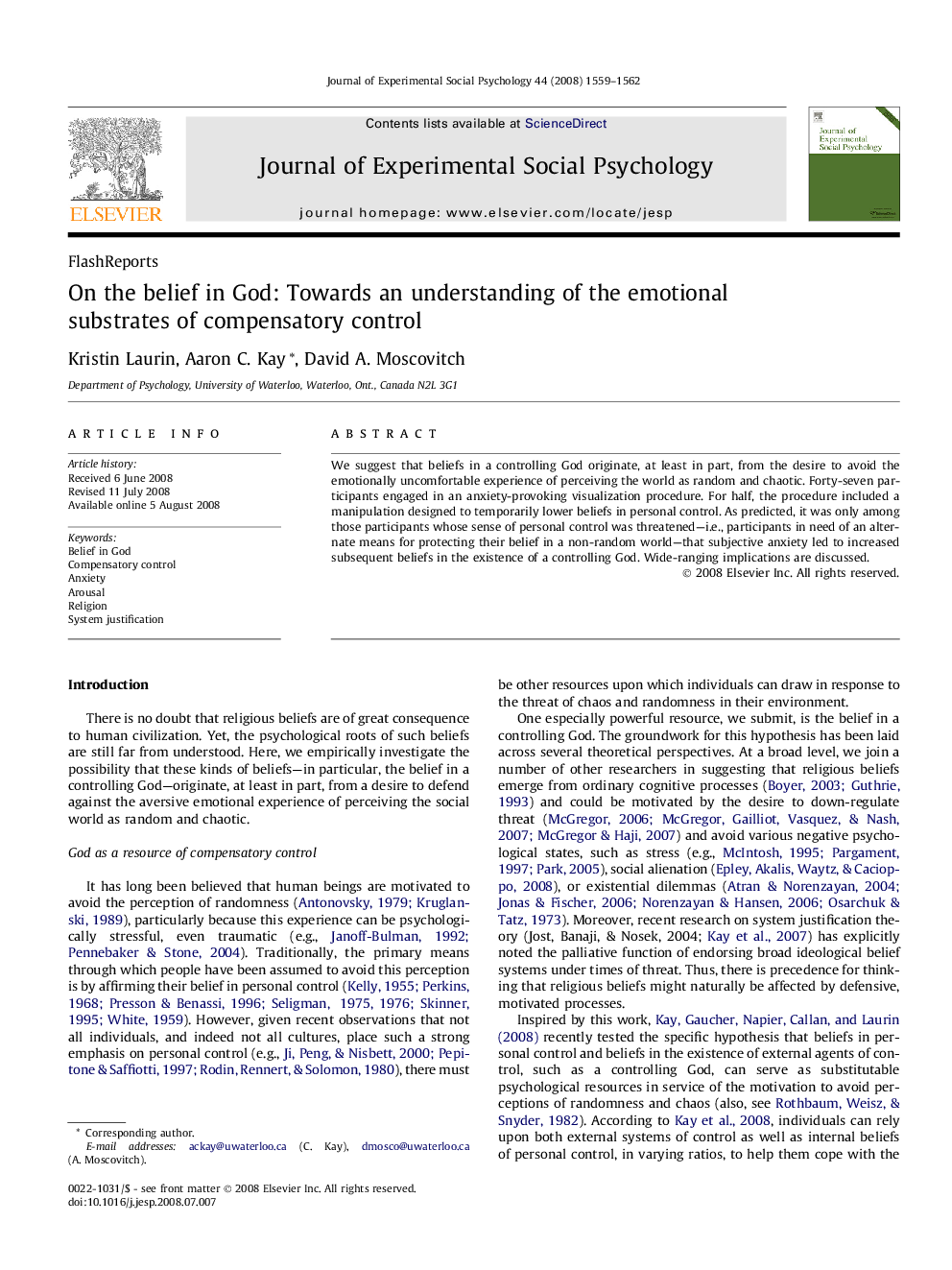| Article ID | Journal | Published Year | Pages | File Type |
|---|---|---|---|---|
| 949066 | Journal of Experimental Social Psychology | 2008 | 4 Pages |
Abstract
We suggest that beliefs in a controlling God originate, at least in part, from the desire to avoid the emotionally uncomfortable experience of perceiving the world as random and chaotic. Forty-seven participants engaged in an anxiety-provoking visualization procedure. For half, the procedure included a manipulation designed to temporarily lower beliefs in personal control. As predicted, it was only among those participants whose sense of personal control was threatened—i.e., participants in need of an alternate means for protecting their belief in a non-random world—that subjective anxiety led to increased subsequent beliefs in the existence of a controlling God. Wide-ranging implications are discussed.
Related Topics
Life Sciences
Neuroscience
Behavioral Neuroscience
Authors
Kristin Laurin, Aaron C. Kay, David A. Moscovitch,
